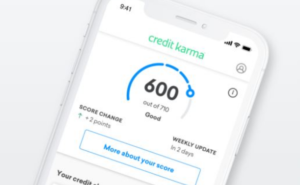What Is a Credit Review?
Do you check your account detail often? Do you request your credit report t see if everything is alright and you are not behind in any payment? You happened to have found just the right blog. This blog will find out what a credit review is and why you should keep reviewing your credit.
Credit Review
A credit review, also known as account review inquiry, is a periodical evaluation of a person’s or a company’s credit profile. Credit providers conduct an extensive investigation to determine borrowers’ creditworthiness and capacity to repay debt.
A credit review can also refer to a yearly credit review performed by the credit lender. Lenders use it to assess your overall financial health, particularly when applying for a larger amount of credit, such as a mortgage.
To qualify for a loan or pay for products and services over an extended time, businesses and individuals must undergo a credit check. A lender or creditor can do this credit check for various reasons.
A lender might want to know your ability to pay him back timely. Or he might be assessing your previous records to see if you have been paying the debts back on time in the past. This is done to develop a lender-borrower trust factor.
This trust may eventually increase the chances of the lender accepting your loan application. So, a negative item on your credit report can affect the lender’s perspective of your payments in general.
During a credit review, lenders look at your credit and financial record and factors that affect your capacity to repay a loan, such as your income and credit use. Credit reviews may be conducted by creditors such as banks, financial services organizations, credit bureaus, settlement businesses, and credit counselors.
How Does a Credit Review Work?
When customers request substantial funds, such as a house mortgage, car loan, home equity line of credit (HELOC), business loan, or credit expansion, lenders frequently undertake a credit review.
A credit review usually entails a credit provider inquiring about your credit report to closely examine your lending and credit monitoring history.
When a lender does your credit review, he closely analyzes the following;
Income — Your debt-to-income ratio will be calculated using all income sources, comprising your work and any side hustles you may have.
Collateral — Credit checks also include loans that need collateral, such as a mortgage or a car loan. If the loan or debt is not paid on time, the collateral might be confiscated and sold to cover the debt.
Capital — During a credit review, lenders also analyze bank balances, investment accounts, and other capital. This enables lenders to determine if you have sufficient financial reserves to pay back.
Other Debt — Lenders frequently inquire whether you have any additional debts that aren’t included in your credit record. Medical expenses and personal loans from family members are examples of these.
What Is The Purpose of Credit Review?
Creditors conduct a credit review for three purposes: to determine if the possible borrower is a trusted entity, to examine a potential borrower’s credit history, and reveal potential negative data.
- Lender’s Trust — Lending is dependent on the lender’s trust in the borrower’s capacity and desire to repay a loan or pay for products acquired, plus interest, on time. Your credit review can determine whether you are accepted or refused a loan as a consumer.
- Borrower’s Credit History — Your credit history records how you’ve used credit and made timely payments. This history informs the lender about your ability to repay the loan on time, resulting in the lender’s trust in you.
- Negative Data — Your credit history can reveal any or every negative data on your credit report; this includes delayed payments, outstanding debts, bankruptcy, etc.
Types of Credit Reviews
There are different situations where a lender might lookup for your credit history. Two of those scenarios are;
- You applied for credit.
- A lender or creditor conducts a periodic credit review.
1. You applied for credit
Credit reviews are usually done when looking for a higher amount of funds. When you apply for a loan — such as a mortgage, car loan, student loan, etc. — the creditor must ensure that you have enough capacity to repay the lent money.
By reviewing your credit report, a creditor sees if you have made timely payments in the past.
2. Periodic Credit Review
Credit card issuers also perform periodic credit checks on their current clients. Your borrowing and repayment history are at regular intervals if you have a credit card.
This kind of review ensures that the credit or loans granted to the customer meet the company’s criteria and that the consumers are creditworthy.
Difference Between Credit Review and Credit Report
If you think credit review and credit report are the same, you are highly mistaken. They are not the same. Lenders review your credit report as part of a credit review, but it doesn’t give creditors a complete picture of your reliability.
A credit review closely examines your credit history beyond your credit report. However, a credit report is a collection of existing data that offers a surface-level overview.
You may consider a credit report as a sub-part of credit review. A lender reviews your credit report as a part of your entire credit review, including assessing your ability to repay the loan timely.
Final Word
A credit review evaluates a person’s or a company’s credit profile. A credit review’s principal goal is to determine a borrower’s creditworthiness. It’s vital to understand your credit report’s information and analyze it regularly.
When a borrower applies for a larger loan, such as a home or car, their credit is reviewed. They also occur regularly throughout the year. A credit review examines your credit in greater depth than a credit report. Your credit score is usually unaffected by a credit review. You may perform a cursory credit check on yourself by looking at your credit record and finances.
Before applying to acquire a loan, it is also important to check your credit report once a year to verify that there are no inaccuracies or fraudulent activities. Every 12 months, customers are entitled to one free credit report from each credit agency – Experian, TransUnion, and Equifax.






